Trump and Biden were undoubtedly the two biggest winners on Super Tuesday, while Haley's last hopes were dashed.
March 5th is known as Super Tuesday because it's the most important day in the race for the US presidential nomination. The Democratic and Republican parties in 15 states and the US territory of American Samoa simultaneously hold primary elections on this day to choose their candidates.
After a day of voting, the outcome seems settled, and Super Tuesday continues to be a crucial milestone in determining the candidates in the US presidential election, with clear winners and losers.
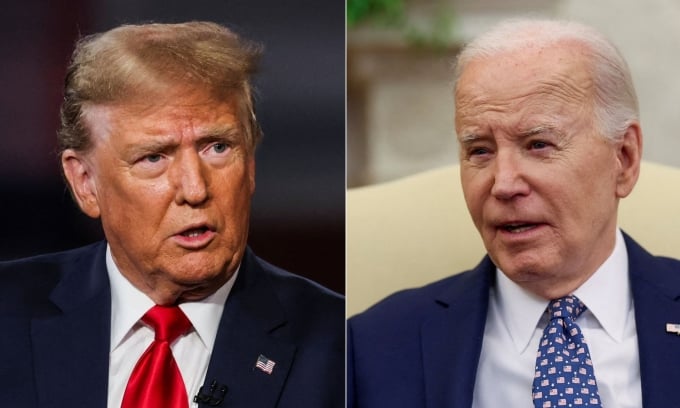
Former US President Donald Trump (left) and President Joe Biden. Photo: Reuters
Observers believe the first winner of Super Tuesday is former US President Donald Trump. The Republican primary race has concluded, even though Trump has not officially secured the nomination. Except for Vermont, he defeated his only remaining opponent, former US Ambassador to the United Nations Nikki Haley, in all other states on this day.
In Virginia, where Haley's campaign still clung to a glimmer of hope before the results were announced, Trump won by a margin of 30 percentage points.
He also achieved even bigger victories in the two most populous states today: California and Texas.
Trump's resounding victory in this year's primary elections marks a remarkable comeback for a candidate whose political career seemed to have ended after the Capitol Hill riots on January 6, 2021.
There are also some warning signs for Trump about his chances of winning in more moderate and affluent areas, such as the northern suburbs of Virginia.
However, the bottom line is that the Republican Party now belongs to Trump.
Equally impressive was President Joe Biden, who only had to face nominal opponents.
President Biden's overwhelming victory demonstrates his potential. The White House leader won in all 15 states, except for Samoa. The winner of the Democratic caucus in that territory was a virtually unknown politician, Jason Palmer, with a total of 51 votes.
In 15 states, no candidate other than Biden achieved a double-digit victory. The president, who believes he is underestimated, is on track to win the Democratic Party's nomination.
Like Trump, Super Tuesday also sent warning signals to Biden, especially regarding his support for Israel in its military campaign in the Gaza Strip.
In Minnesota, a group of pro-Palestinian Democrats, disillusioned with the White House's policies on Israel and Gaza, launched a "no vote" campaign. In this campaign, they urged voters to choose "no vote" instead of selecting Biden on the ballot.
The "no vote" option indicates that the voter supports the Democratic Party, but does not vote for any of the candidates listed on the ballot. These votes will not be counted for President Biden.
Twenty percent of voters responded to the call, equivalent to over 45,000 people. The campaign organizers noted that they had only campaigned for one week and spent $20,000.
This figure far exceeds the results in Michigan last week, where 13% of Democratic primary voters chose "no vote".
Supporters of President Biden may hope that Israel and Hamas will soon reach a ceasefire in Gaza, thereby helping to ease the political wounds the White House is currently suffering.
But observers believe the real danger to President Biden is becoming clearer than ever before.
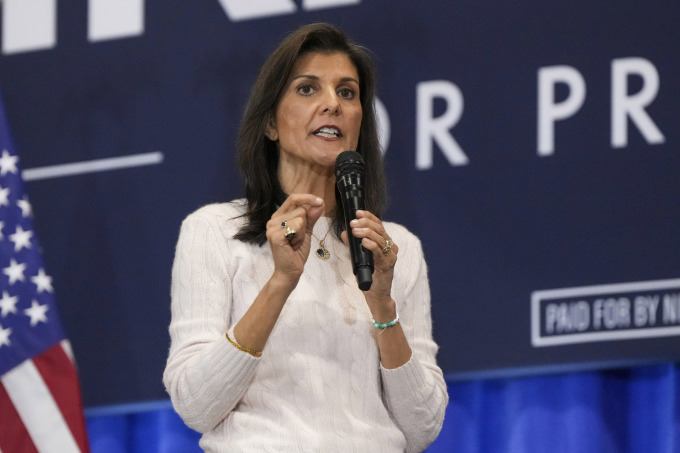
Nikki Haley speaks in Greer, South Carolina, on February 19. Photo: AP
Speaking of the losers on Super Tuesday, the name most frequently mentioned is Nikki Haley. She only won one of the 15 states that held primary elections on March 5th.
But her victory in Vermont, one of the freest states in the country, wasn't enough to reverse the situation against Trump. After Super Tuesday, Trump had 1,040 delegates, while Haley had 86. A candidate needs a minimum of 1,215 delegates to secure the Republican National Convention nomination in July.
For her, this was the night when every remaining flame of hope was extinguished. The former US ambassador to the United Nations subsequently announced the suspension of her campaign. With this decision, Donald Trump became the sole Republican candidate for the 2024 presidential election.
She expressed gratitude for the support of many voters across the country, saying she wanted the voices of Americans to be heard. "I did that. I have no regrets," she said.
Despite her defeat in the primaries, Haley proved her capabilities, easily replacing Florida Governor Ron DeSantis and becoming the main figure in opposition to former President Trump.
Haley is only 52 years old, so she could easily run for re-election in 2028 or later. But with 2024 approaching, she's certainly reached the end of her road.
Another party that experienced unexpected disappointment was the American public. What was supposed to be a dramatic race turned out to be relatively dull this year.
The final result was unsurprising, and along with it, the public's excitement was dampened.
But this highlights the main paradox of this year's race.
Biden and Trump would easily win the nomination from their respective parties, but polls show millions of Americans are viewing the prospect of a rematch between the two with reluctance.
In January, a Reuters/Ipsos poll indicated that 67% of Americans were "tired of seeing the same candidates in the presidential election and wanted new faces."
In theory, this would open the door for third-party candidates to enter the election. But whether anyone can actually take advantage of this opportunity is another story.
Independent candidate Robert F. Kennedy Jr., grandson of the late U.S. President John F. Kennedy, announced on the same day that he now has enough signatures to have his name on the ballot in Nevada.
Kennedy is receiving 11% support in a hypothetical race against President Biden and former President Trump. Meanwhile, Trump is leading Biden by 2 percentage points.
Vu Hoang (Based on Hill, Reuters, AFP )
Source link







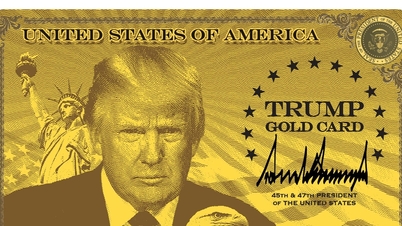

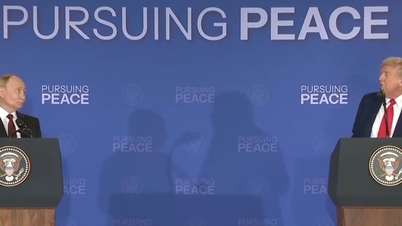
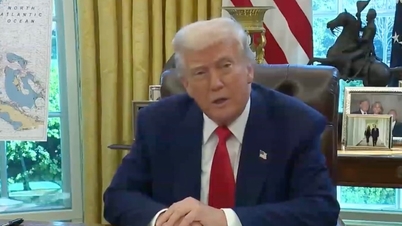
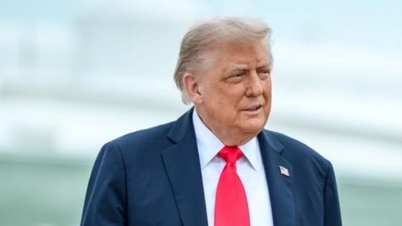





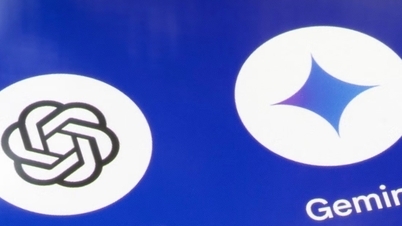



























































































Comment (0)